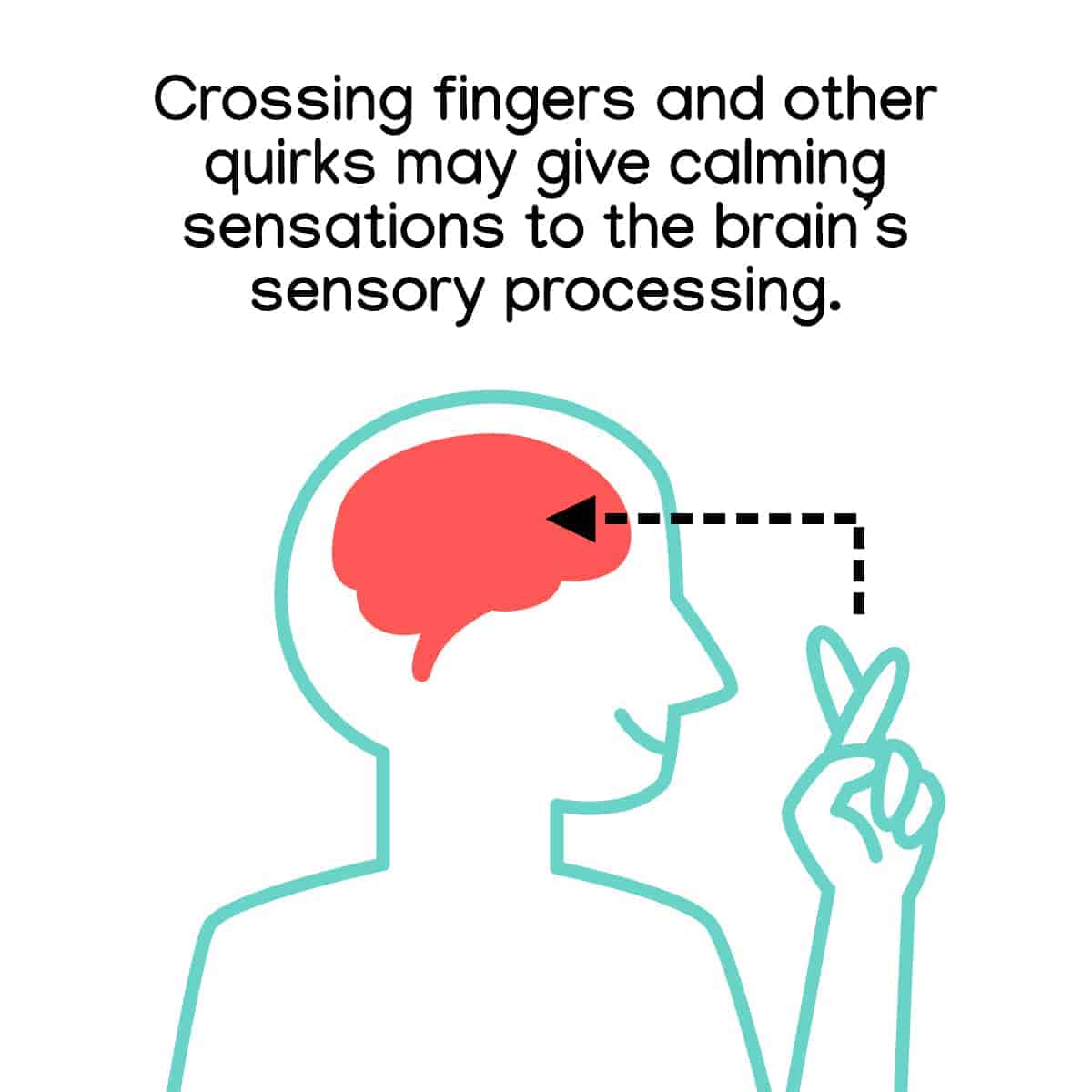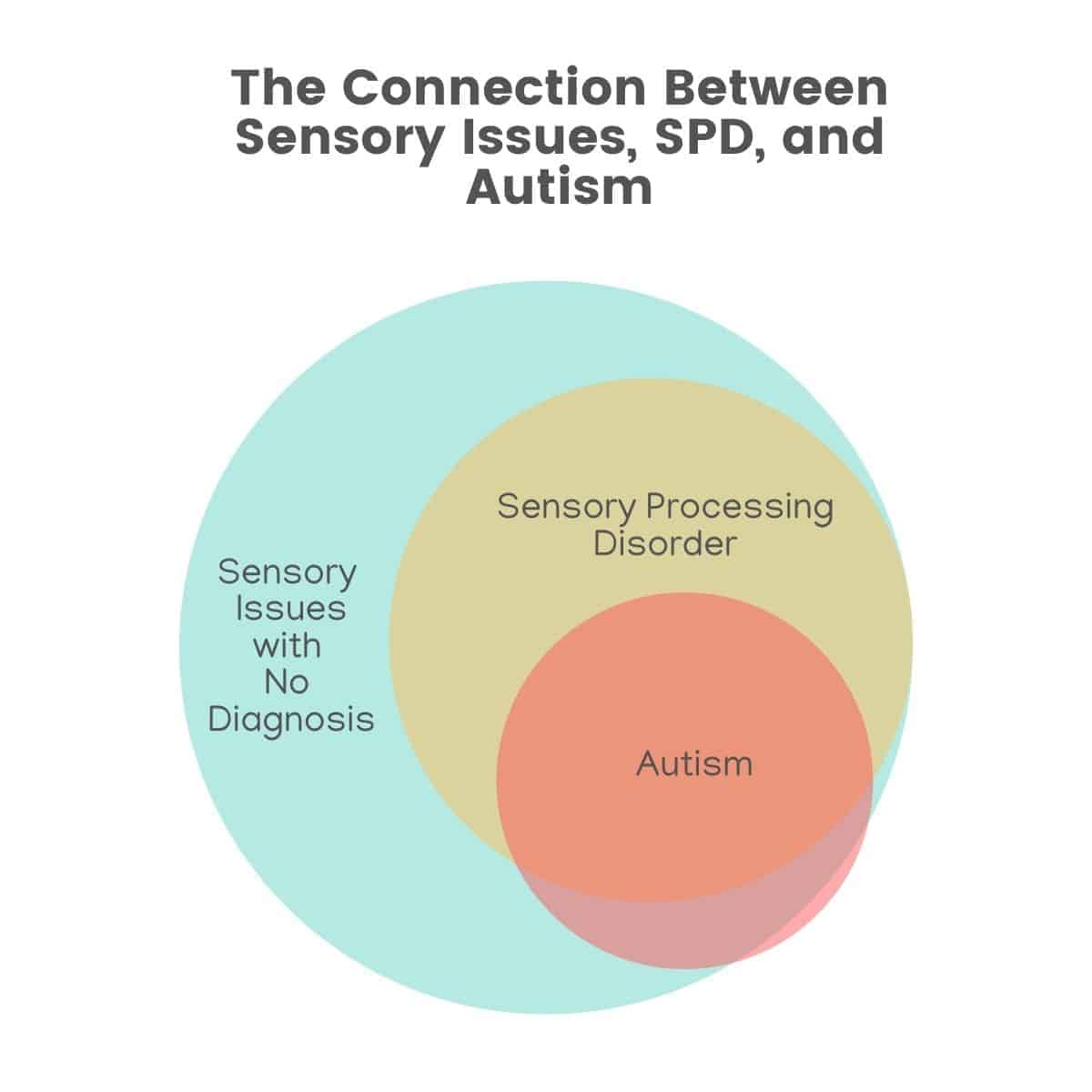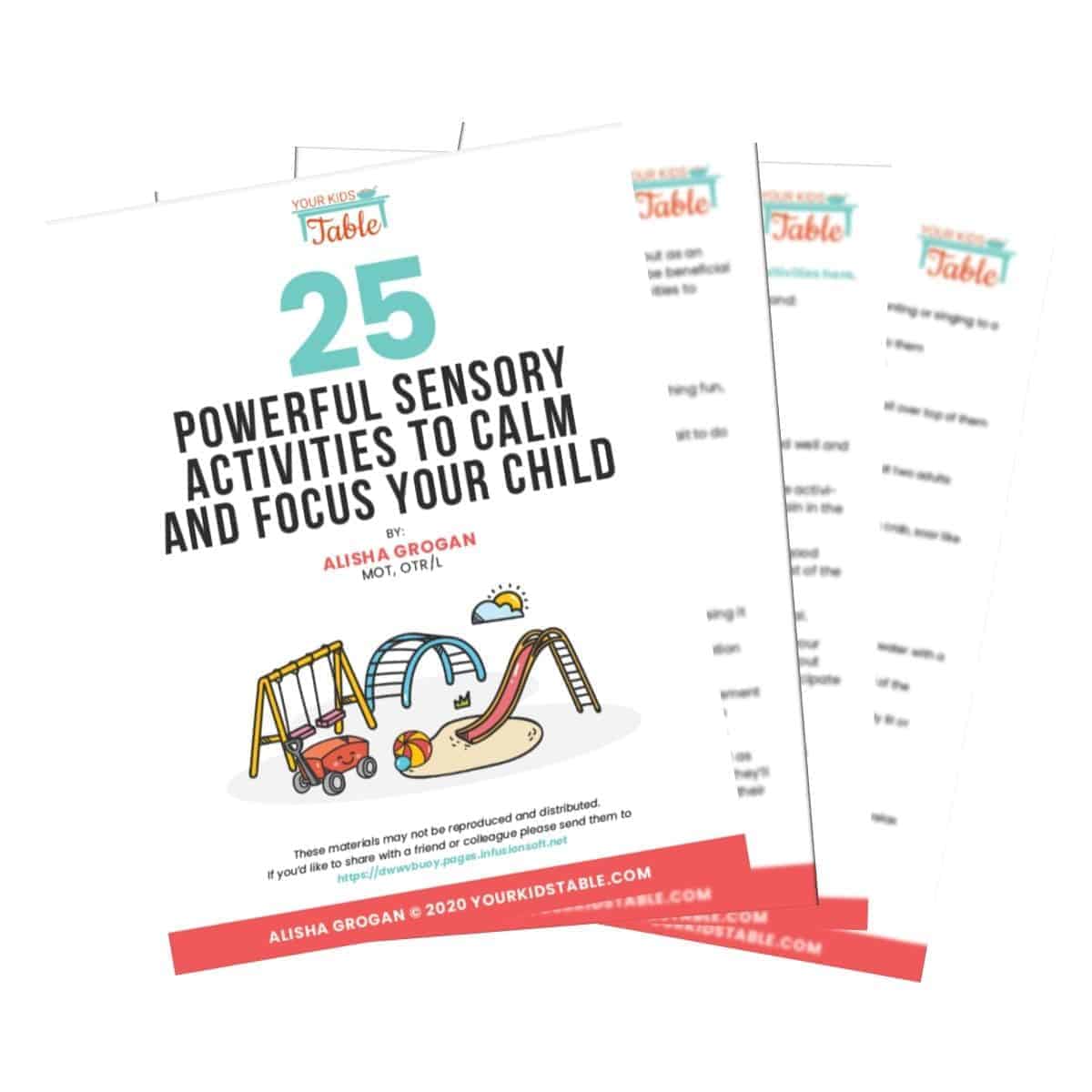Do you have a toddler crossing their fingers? Worried it’s a sign of autism? Find out the hidden reason why your child is always crossing their fingers…
Affiliate links used below. See our full disclosure.
It seems weird, right? Your toddler is constantly crossing their fingers. Or, maybe just sometimes.
Either way, it seems odd.
You haven’t noticed other toddlers crossing their index finger and middle finger.
As an occupational therapist, I can assure you there is an explanation! One you probably haven’t heard of before.
Help… My Toddler is Crossing Fingers
If you’re concerned, or even freaking out that your toddler is crossing their fingers, that’s a normal reaction. Sometimes, older babies will start to cross their fingers too. While worrisome, it’s impressive that babies and toddlers are able to cross their fingers because it requires some dexterity…
But, it’s not typical.
Take a deep breath, you’re in the right place. Let’s get started with addressing the elephant in the room…
Is Finger Crossing a Sign of Autism?
You may have wondered or even Googled to find your way here “is finger crossing a sign of autism?”
The answer is, not exactly. There are many other more important signs that a child may have Autism Spectrum Disorder (ASD), including, but not limited to:
- Poor social interaction and connection with others
- Delayed speech development
- Lack of facial expressions
- Poor eye contact
- Impulsive behavior
- Repeats words or actions
- Prefers to be alone
Did you catch where “child always crosses fingers” might fit in as a sign of autism?
Children with ASD may have repetitive words or actions. But, not all kids with autism do and some kids have repetitive words and action and don’t have Autism.
Crossing fingers constantly is one of many unusual actions a toddler or child may make. Also, related to the hands, some kids will repeatedly rub their fingers together or twist their fingers.
More common repetitive behaviors are hand flapping, rocking, or spinning in circles.
However, even those actions don’t necessarily indicate Autism though.
When a child’s healthcare providers give a diagnosis of Autism, they’re looking at a variety of factors, primarily social skills and interaction.
If you see some of the signs listed above, and your child has the repetitive behavior of crossing their fingers, then it’s possible your child may have Autism. But, you don’t have to figure that out on your own. With the high prevalence of ASD, pediatricians are usually very receptive to a parents concern and can help direct you to how to get an evaluation.
And, whether your child has Autism or not, the reason they’re crossing their fingers, flapping their hands, rocking, or twisting their fingers is the same…
Why Does My Toddler Cross Their Fingers?
The hidden reason that a child is completing these odd, quirky, and unusual actions is related to sensory processing. Sensory processing is a function of the brain that’s responsible for interpreting and responding to information from all the senses.
Let me give you a few examples…
- When you feel the tag on the back of your shirt, it’s your sensory processing.
- When you get dizzy spinning around with your child, it’s because of your sensory processing.
- When you pull a bunch of blankets over top of you at night and feel relaxed from the weight of the blankets, it’s because of your sensory processing!
Sensory processing is constantly at work, while it’s not part of our everyday language, it’s a major part of our kids development. And, just like any other area of development, sometimes the sensory system isn’t working as smoothly, this is dysregulation.

When the sensory system isn’t working as smoothly kids often seek out more sensations or try to avoid them. What you see as a result are unusual body movements and actions, like a toddler crossing their fingers.
Those odd or quirky behaviors that are a result of a child’s sensory processing are often referred to as sensory issues or sensory symptoms.
What Should I Do If My Child or Toddler is Constantly Crossing Fingers?
Your little girl or boy is likely crossing their fingers because they like the sensation. Try crossing your fingers right now. Close your eyes and just focus on the sensation.
You can feel pressure, a sort of tightening around that index and middle finger.
While that might seem obvious, we take it for granted. Babies, toddlers, and even older children that start constantly crossing their fingers enjoy that feeling.
They enjoy it, or in sensory speak, seek it out because of the unique process of their sensory system.
That feeling of “pressure” is experienced through a sense you may have never heard of before: proprioception. Proprioception is our sense of body awareness like vision is our sense of sight.
The receptors that send sensory input to the brain are located in our muscles and joints. They’re activated anytime they are squeezed or experience impact. Just like the receptors for vision are our eyes and when light hits our eyes, it sends the information to the brain.
Kids and toddlers that cross their fingers are often seeking out more proprioceptive input because their sensory system isn’t getting enough.
Other ways you can experience proprioceptive input are through:
- Hugging
- Jumping
- Climbing
- Laying under heavy blankets
- Running
- Squeezing into a tight spot
- Carrying, pushing, and pulling heavy objects
If your child seeks out any of these movements on a regular basis, then you can consider them sensory red flags.
In fact, a child constantly crossing fingers is also a sensory red flag. Grab our free printable checklist of 21 other sensory red flags you might be missing!
That’s not a bad thing, it’s just a sign that they may need some help with their sensory processing. Kids with sensory processing difficulties are typically distracted by sensations they’re craving or trying to avoid.
Because of that distraction, it’s common for them to struggle with attention, following directions, picky eating, sleeping, and socializing.
But, you can use specific sensory activities that are often very simple to help your child improve their sensory processing so that these behaviors like crossing their fingers decreases or even stops! More on that shortly.
The Connection Between Autism and Sensory Processing
The vast majority, if not all children with Autism have sensory challenges. Their sensory system seems to be impaired. But, it’s important not to assume that if a child has sensory issues that they have Autism.
It’s not a two way street.
Many kids have sensory difficulties and don’t have autism. Read more about the link between autism and sensory issues.
Check out this graph that shows all kids with sensory issues. Some have sensory issues impacting their life that they receive a diagnosis of Sensory Processing Disorder, although it’s not a recognized diagnosis in the DSM-5. Children with Autism are a portion of the kids with sensory issues, but not all of them:

When Kids are More Likely to Cross Their Fingers…
Some children and toddlers will cross their fingers all the time. But, for others, they may tend to cross their fingers more when they’re:
- Nervous: The proprioceptive input a child receives when they cross their fingers is calming. All proprioceptive sensations generally are. It makes sense that when a child’s anxiety goes up that they cope by seeking out that calming input
- Eating: Lots of kids with sensory difficulties struggle with eating a variety of food. They’re overwhelmed by texture or taste and crossing their fingers is used to get that calming input again.
- Upset: If a child is upset and crying, they’re looking for a way to soothe themselves. If they’ve identified that crossing their fingers gives them some ability to calm, then they’re going to do it!
- Excited: Sometimes a child gets so excited they feel like they’re going to float away, it’s all too much for them to handle. In their excitement, they may be trying to ground themselves by feeling the pressure and relaxation of crossing their fingers.
It should also be noted that over time some, kids will continue to cross their fingers out of habit, the sensory need may decrease, but it’s habitual so they continue.
Should I Stop My Toddler from Constantly Crossing their Fingers?
Your toddler crossing their fingers, might seem weird. It’s not typical, but now you understand why. Usually, no damage is being done to your child’s fingers, unless you see them changing color from a lack of blood flow or their fine motor skills are impacted because they’re crossing their fingers so often.
Generally those are extremely rare cases, and none I’ve ever seen in a child. If you have concerns with either, definitely talk to your child’s doctor.
Instead of just uncrossing their fingers for them, which can lead to tantrums and even sensory meltdowns, you could give them other types of proprioceptive input.
Get a whole list of proprioceptive activities here perfect for toddlers and older kids.
Think about a fidget toy they can squeeze, experiment with a few different types, there are so many readily available. My go-to is the good ol’ fashioned stress ball!
If you feel like your child is still crossing their fingers simply from habit, then using fidget toys is a great replacement for them.
Try joint compressions, jumping on a trampoline or bed, or wheel barrow walking. All of these activities give lots of that calming proprioceptive input.
Snag a List of Simple Sensory Activities for Free
Want more easy to do simple activities for busy moms and dads? Then grab our free 25 Powerful Sensory Activities to Calm and Focus Your Child. We’ll send it right to your inbox so you can print it out or save it on your phone.
More Toddler Sensory Red Flags
10 Sensory Red Flags You Might Be Missing
The Hidden Reason Your Kid is Super Sensitive, Hyper, or Bad!
How to Identify Sensory Issues in Toddlers
Alisha Grogan is a licensed occupational therapist and founder of Your Kid’s Table. She has over 19 years experience with expertise in sensory processing and feeding development in babies, toddlers, and children. Alisha also has 3 boys of her own at home. Learn more about her here.


Hi,
Thanks for this. I have noticed my almost 20 month old crossing his fingers. Whilst he is really good at following instructions, some complex, ones at that (i.e. pick that up and put it in the bin, go and get a book from your bedroom etc…) I find that sometimes his attention is short.
Hi Dwayne,
Attention at this age is hit or miss, but it’s definitely helpful and important to pay attention to these things to know how to support them if they need it. Thanks for following!
Best,
Laura
Your Kid’s Table OT
Hi 👋🏻
I’m so relieved to see other parents have seen this, I thought it was very uncommon. My daughter is a toe worker (only when barefoot) , speech delayed, sucks her two fingers at night, and after sucking her fingers (if she’s not sleeping) she often crosses them as they’re wet . I have seen her bite her nails a lot more and when she grabs something has a kind of weird grip. I have mentioned these little things many times at my child IEP meetings and pediatrician appointments. It seems to all be normal or nothing to really worry about . Am I doing the right thing by not pushing further examination ?
Hi Valeria! Thanks for reaching out! Yes, these little odd quirks like this are more common than you think! And while they don’t typically cause any damage or concern, if you’re worried, I would continue to refer to your pediatrician. In the meantime, to help with these quirks, you can try doing some sensory activities that can help give her other types of proprioceptive input. Here is a list of some!
Best,
Kalyn
Hi, may baby girl is 6 month old and her 7 month is started and she is crossing her fingers , she don’t even get that she want to sleep so it’s so hard to put her sleep because she start crying when she wants to sleep it’s very rare that she sleeps by her on , she don’t even like to be surrounded by many peoples , don’t even like to go to anyone house, mostly she plays by her self , love to have a walk with her grand mom , and love to go out and see children’s play from far.
I was having anxiety and depression when I was pregnant with her so I’m always scared that she might have some issue because of me
Hi Faryal! Thank you for reaching out! Please don’t blame yourself- it is definitely not because of you! I hope you’re feeling better postpartum ❤️ Honestly, she is still so very young, it could be that she is just adjusting to crowds/people/places. We have a blog post with more info about sensory and babies— check it out here and let us know if you have any questions.
Best,
Kalyn
Hi please can I have a little more info my child has nf1 and noon syndrome. In the last 6 weeks she’s has started with a bad lazy eyes . And started crossing her fingers on both hands. What’s the best root I should go down we seeing someone for her eyes
Hi Joanne! So sorry to hear about that! If she’s having issues with her eyes, definitely talk with your pediatrician, who can refer you to a specialist.
Best,
Kalyn
Hi Alisha, great blog! Thanks for sharing all the sensory needs that children might have. I have a 16 month old and he loves wrapping my hair around his fingers. I’ve noticed that he mostly does this when he wants to go to sleep ( he continues to hold my hair throughout the night) or when he’s anxious. Is this a sensory thing and if so do you have any suggestions?
Hi Poorani! Thank you for reaching out! The holding of your hair definitely sounds like a sensory thing! We suggest trying to find an alternative- something else for him to hold onto or squeeze for comfort, such as a silky lovey, small blanket, or doll. Hope that helps!
Best,
Kalyn
Just read a bit of this and saw the list of :hugging, jumping, running etc. that’s basically every child. You’ve listed a childhood. Surely everyone is now going to think their child has an issue. My son still isn’t talking loads, he’s nearly 2 and loves all the things on your list, maybe except the blanket one. But he’s just a happy boy. You need some context to when ‘running’ or ‘hugging’ or ‘climbing’ is a sign. These are all just normal things!
Hi Bethany! Thanks for reaching out! You’re right- some of these things listed can be totally normal! It all just depends on the context and frequency in which they are occurring. But also, these things are all apart of proprioception, which is our sense of body awareness, the same way that vision is our sense of sight. And in developing children, sometimes there can be over and under processing of these senses. We do mention and link our post for sensory red flags that can point out more concerning signs. Let us know if you have any other questions!
Best,
Kalyn
Hi, my child has 14 months she has crossing her finger when walking sometimes, when she see her favourite things started to hand flapping, using gesture more without our commands like clapping hands, index finger uhuhh. And also she using her mouth like shhshh.. but she responds her name, ponting object what she wants, follow our commands, firstly she started to call daddy mommy brother sister correctly when see the person. Now, she calling everyone mommy. I was stressed and frustrated because me and my husband alone taking care of her
Hi Sharmila,
Do you have access to occupational therapy where you live? She may benefit from these services if you have access to them. You can usually ask through your doctor. If you don’t, your kiddo may benefit from our online sensory program. We have a free workshop you can check out first.
Best,
Laura
Your Kid’s table team member
Great blog, Alisha! I am an animal assisted therapist and encounter sensory issues all the time! What about hand clapping is that also a proprioceptive issue?
Hi Rachel! Thanks for reaching out! Yes, hand clapping can definitely be part of this! We also have a blog with more information on proprioception and activities to help. Check it out here!
Best,
Kalyn